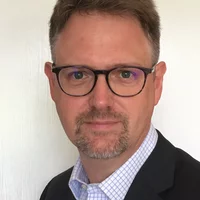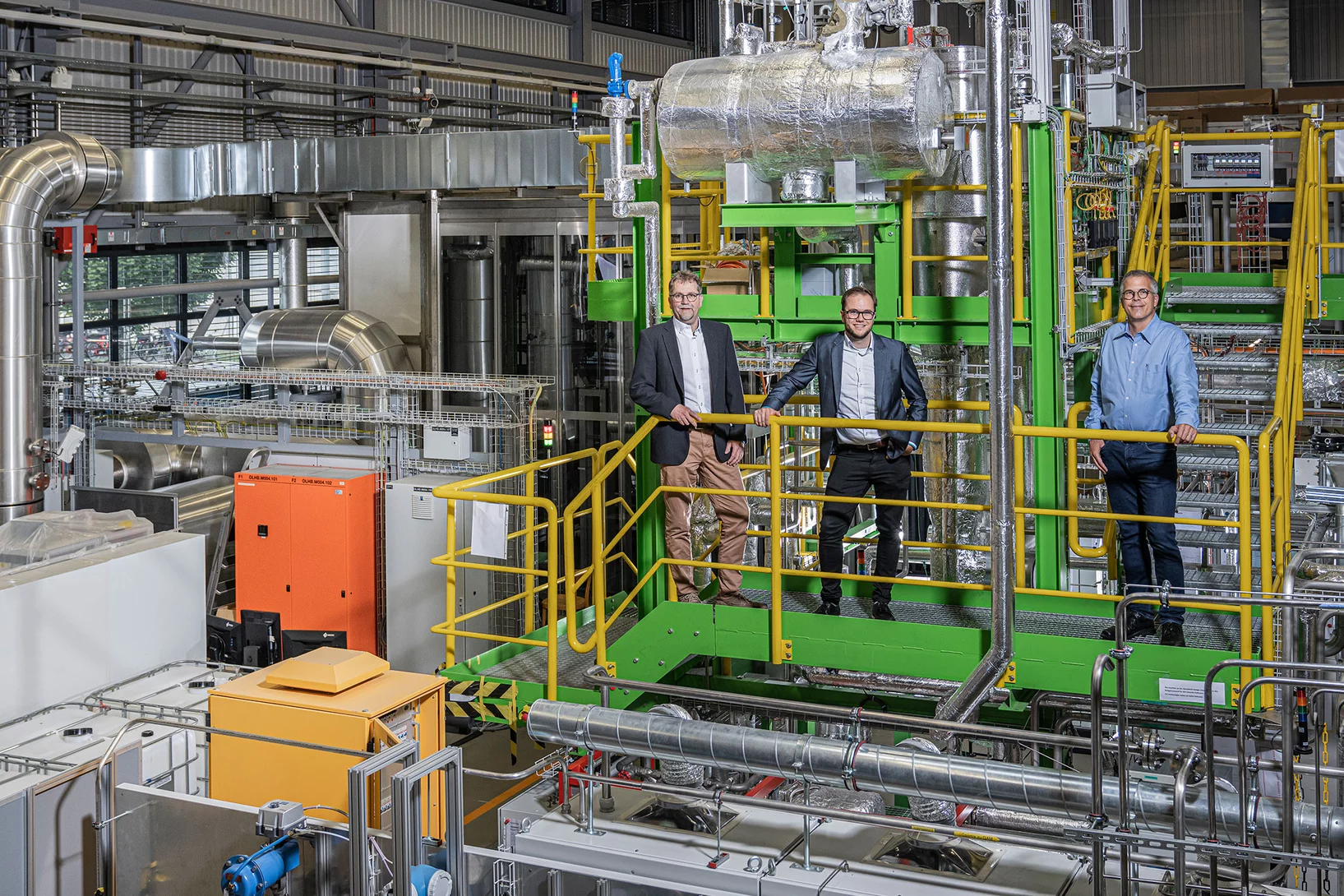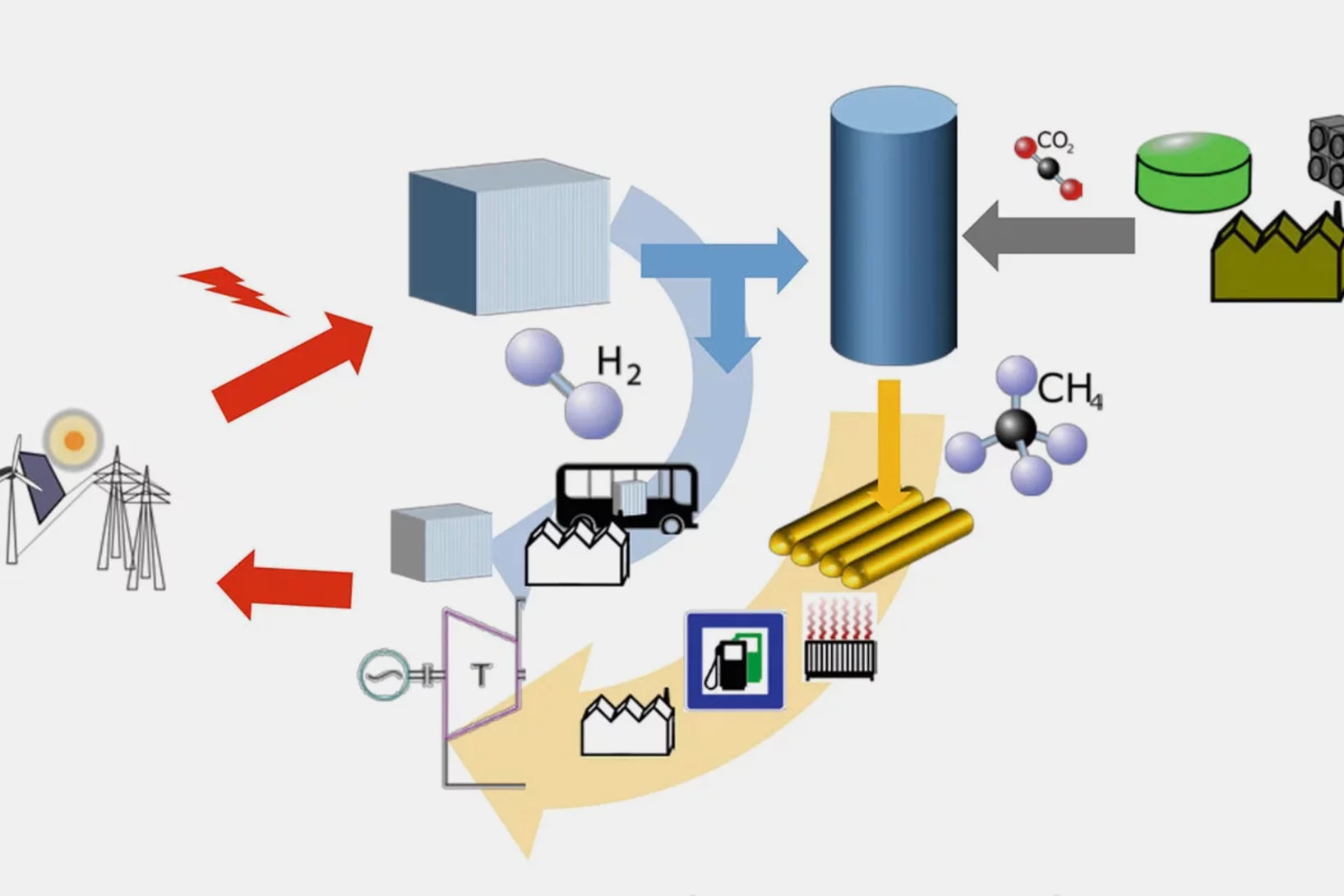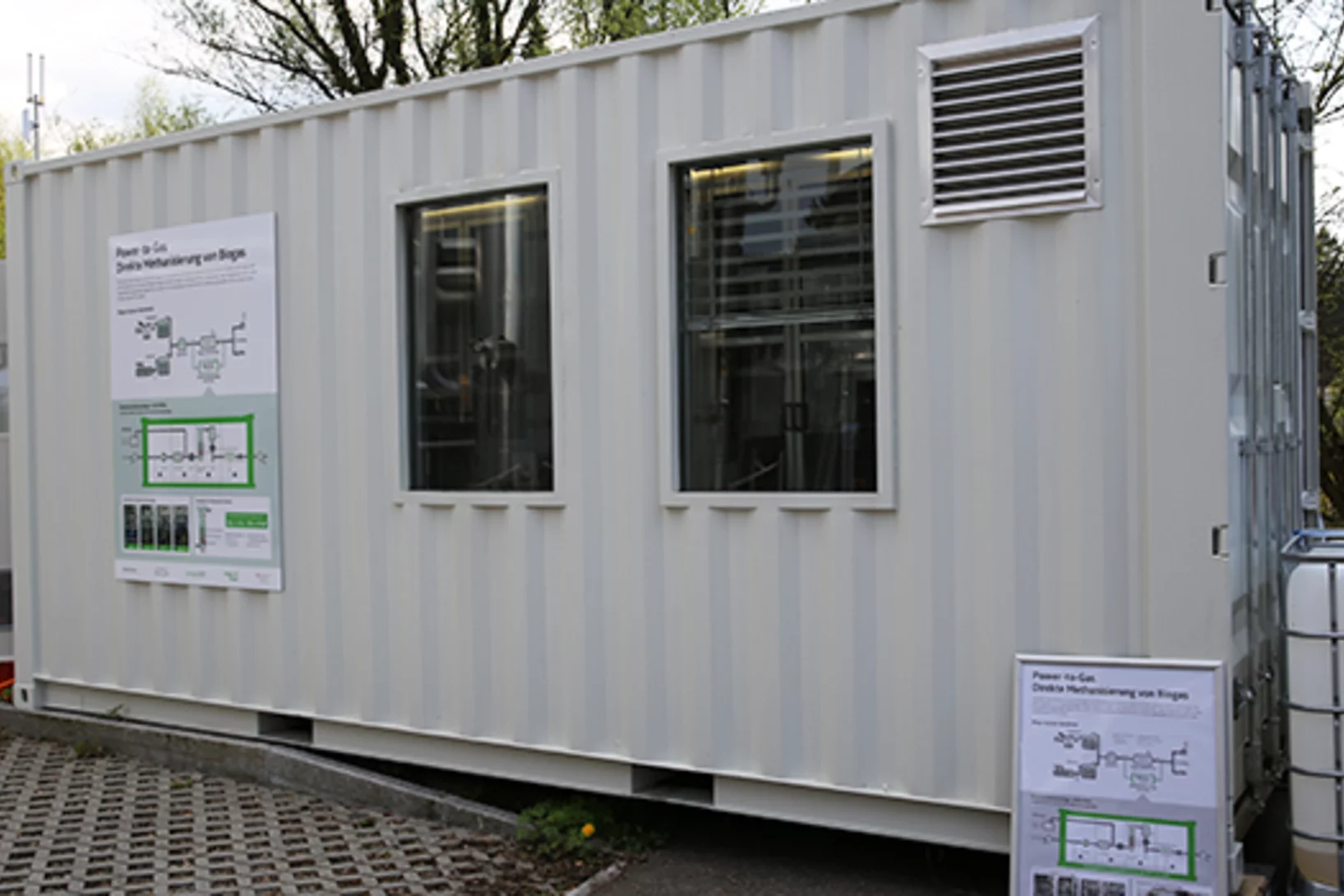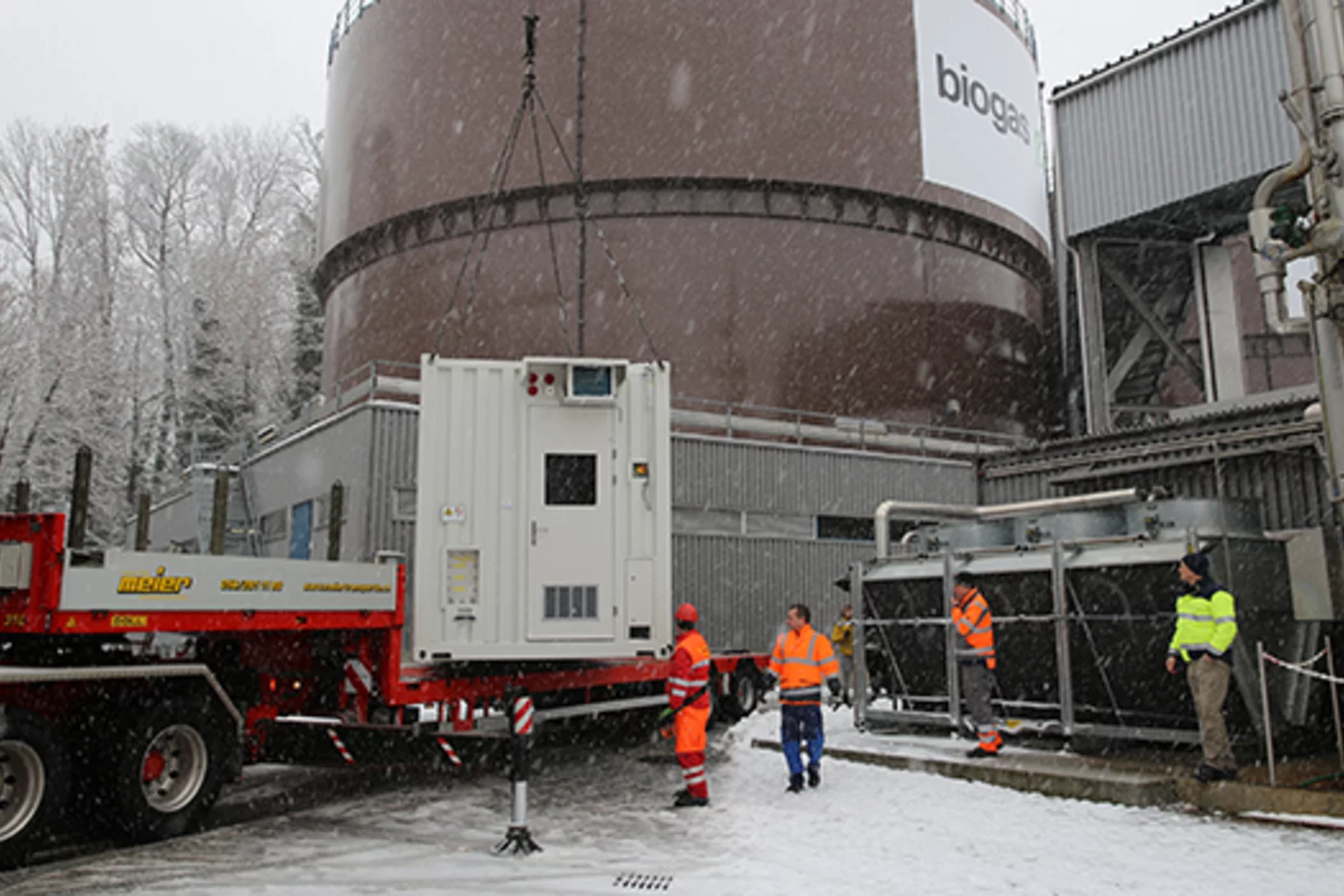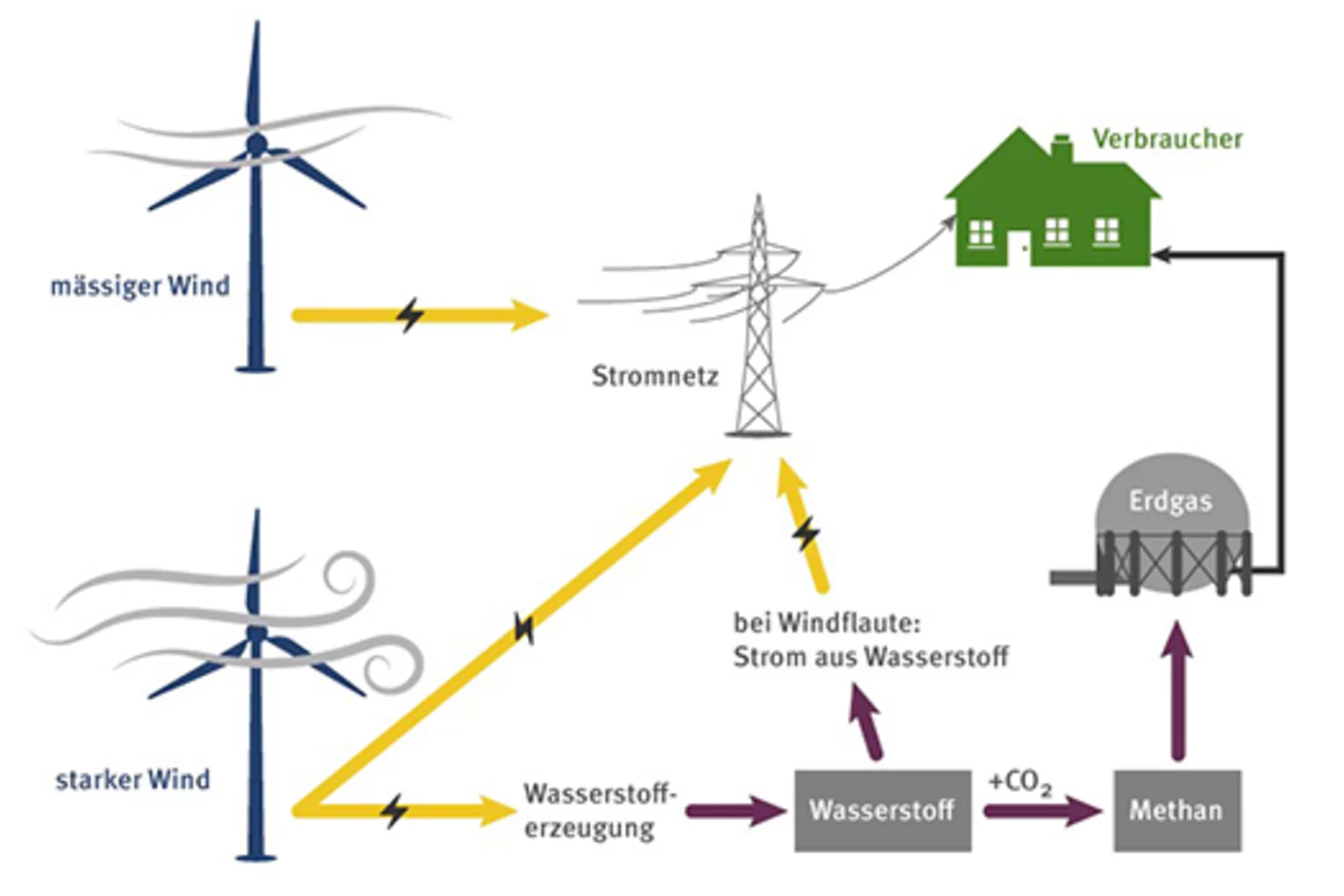Switzerland has no available fossil gas reserves. It also lacks substantial domestic storage capacities, like those used by Germany. Because of this, geopolitical conflicts and crises can lead to supply shortfalls. Synthetic methane could be a way of getting around this dependency. It can be produced sustainably in Switzerland and fed directly into the existing gas grid.
Around 15 percent of Switzerland’s energy needs are met by fossil gas. This is mainly used to generate heat in private households and industry, and, to a smaller extent, for transport. Compared with the rest of Europe, the figure of 15 percent seems rather low. Nevertheless, some 300,000 private households, which need this fuel for heating, cooking and hot water, would be affected by a gas shortage.
There are many possibilities for heating homes in a carbon-neutral way that reduce dependency on energy imports. With ground source heat pumps, for example, pipes are buried deep in the soil to extract the Earth’s natural energy stored underground. Air source heat pumps absorb ambient outside air and convert it into heat. Both technologies are heavily dependent on location, however. Heating with electricity from renewable sources, solar power or pellet-fuelled heating systems are other alternatives.
The advantage of the Swiss gas network is that the energy source can be stored and distributed across the existing infrastructure. Synthetic methane could therefore be part of the solution. The gas is carbon neutral and can be produced sustainably in Switzerland and fed directly into the existing gas network. Scientists at the Paul Scherrer Institute are conducting intensive research into the synthesis of methane from carbon dioxide and hydrogen. In the first episode of our Energy Future series we explain how the technology works.
Synthetic methane is set to play an important role in the Swiss gas grid in the future. Here we explain how the technology works.
(Video: Paul Scherrer Institute/Benjamin A. Senn and Mahir Dzambegovic)
The video series Energy Future deals with everyday questions on the topic of Switzerland’s energy transition. Each short video focuses on one particular issue. Possible solutions are put forward taking the latest results of energy research at the Paul Scherrer Institute.
